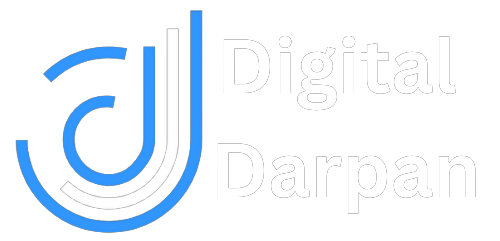In today’s digital world, a strong online presence is vital for any business. As a digital marketing company, you understand the power of content marketing, and your blog is a prime tool to attract potential clients and establish your expertise in digital marketing for businesses. But how do you craft blog posts that not only resonate with your audience but also rank high on search engines like Google?
This guide will equip you with the knowledge to write compelling and SEO-friendly blogs, propelling your digital marketing agency to the forefront of the online marketplace.
Steps To Craft Perfect Blog Posts

Follow the given steps to draft an SEO Friendly blog post for your website and attract maximum traffic:
1. Know Your Audience: Tailoring Content for Specific Needs in Digital Marketing
Before diving into keyword research and technical aspects, understanding your target audience is paramount. Who are you trying to reach? Small businesses in the hospitality sector? Local e-commerce stores? Identify their specific needs and challenges in the digital marketing for businesses landscape. Talk to existing clients, conduct surveys, or research online forums frequented by businesses in your target market. By understanding their pain points, you can craft content that directly addresses their concerns, establishing yourself as a trusted resource in businesses.
2. Keyword Magic: Unlocking the Secrets of Search for Digital Marketing
Now, let’s delve into the world of Search Engine Optimization (SEO). Keywords are the terms people use to search for information online. Strategic keyword usage, particularly those related to digital marketing for businesses, is crucial for search engines to understand your content’s relevance. Here’s a breakdown:
- Focus Keyword: This is the primary keyword you want your blog post to rank for. For instance, if you’re targeting businesses looking for social media marketing guidance, your focus keyword could be “social media marketing for businesses.”
- Long-tail Keywords: These are more specific phrases that users might employ for in-depth searches related to digital marketing for businesses. Examples include “best social media marketing strategies for hotels” or “affordable social media marketing packages for startups.”
Keyword Research Tools for Digital Marketing
Several free and paid tools can help you identify relevant keywords for digital marketing for businesses. Here are a few popular options:
- Google Keyword Planner: A free tool by Google that offers insights into the search volume and competition for various keywords related to digital marketing for businesses.
- Ahrefs: An industry-standard tool offering advanced keyword research features, competitor analysis, and backlink tracking (paid).
- SEMrush: Another comprehensive SEO suite with keyword research capabilities, on-page SEO audits, and rank tracking (paid).
Keyword Integration: A Delicate Dance for Digital Marketing Content
Once you have your keywords, it’s time to integrate them seamlessly into your content on digital marketing for businesses. However, remember, quality trumps quantity. Here’s how to strike the right balance:
- Naturally Include Keywords: Don’t force keywords; weave them organically into your writing when discussing digital marketing for businesses.
- Target Primary Keyword: Include your focus keyword in your title, meta description, headings, and throughout the content on digital marketing for businesses, but avoid overstuffing.
- Embrace Long-tail Keywords: Utilize long-tail keywords to target specific audience segments and enhance search relevance for digital marketing for businesses.
- Semantic SEO: Understanding the Bigger Picture
Modern SEO goes beyond just keywords. Semantic SEO focuses on understanding the user’s intent behind their search and providing content that comprehensively addresses that intent. This includes incorporating entities and related topics relevant to your primary keyword. For instance, when discussing “social media marketing for businesses,” you might include related entities like “Facebook marketing,” “Instagram marketing,” and “social media engagement strategies.”
Read- What Is Semantic SEO And How It Improves Ranking
3. Content is King: Crafting Captivating Blog Posts on Digital Marketing
With your audience and keywords in mind, it’s time to create content that informs, engages, and converts readers interested in digital marketing for businesses. Here are some key aspects to consider:
- Compelling Headlines: Your headline is the first impression; make it clear, concise, and attention-grabbing. Use strong verbs and highlight the benefits your blog offers on digital marketing for businesses.
- Structure for Readability: Break down your content with subheadings, bullet points, and numbered lists for easy navigation when learning about digital marketing for businesses.
- Informative and Engaging: Provide valuable insights, actionable tips, and real-world examples relevant to businesses seeking digital marketing for business solutions.
- Storytelling Power: Weave stories, case studies, or client success stories related to digital marketing for businesses to connect with your audience on an emotional level
- Visual Appeal: Include high-quality images, infographics, or videos to enhance user experience and break up text when discussing digital marketing for businesses.
- Content Freshness: Search engines favor fresh content. Regularly update existing blog posts with new information or insights to maintain their relevance.
- E-A-T: Expertise, Authoritativeness, and Trustworthiness: Google prioritizes content from credible sources. Build your E-A-T by showcasing your expertise in digital marketing for businesses through author bios, industry certifications, and links to reputable sources.
4. SEO Optimization: Sending the Right Signals to Google for Digital Marketing Content
While content is king, SEO is the queen that ensures your content on digital marketing for businesses gets discovered. Here are some technical aspects to optimize your blog for search engines:
- Meta Descriptions: These concise summaries appear under your blog title in search results. Write compelling meta descriptions that accurately reflect your content on digital marketing for businesses and include your focus keyword.
- Image Optimization: Optimize image file sizes and include descriptive alt text that incorporates your keywords and relevant entities related to digital marketing for businesses.
- Internal Linking: Link to relevant pages within your website to improve user navigation and website authority. Focus on internal linking content that explores related topics or dives deeper into specific aspects of digital marketing for businesses.
- Mobile-friendliness: Ensure your website and blog are optimized for mobile devices, as many users search on their phones.
- Technical SEO: While not an exhaustive list, some technical SEO factors to consider include having a clean website structure, a fast loading speed, and a secure HTTPS connection.
5. The Power of Promotion: Spreading Your Message Beyond Your Website
Once your blog is published, don’t let it languish in the digital abyss. Here are some ways to promote your content and amplify its reach for digital marketing services:
- Social Media Sharing: Share your blog post on relevant social media platforms to reach a wider audience interested in digital marketing for businesses.
- Email Marketing: Include a link to your blog post in your email newsletter to keep your existing client base informed.
- Influencer Outreach: Collaborate with influencers in the digital marketing space to promote your content to their audience.
- Guest Blogging: Contribute guest posts to other websites in your industry, including a link back to your blog post on digital marketing for businesses.
6. Building Authority and Trust: The Long-Term Game of SEO
While creating a single blog post can be impactful, true SEO success lies in a consistent content creation strategy focused on digital marketing for businesses. Here’s how to establish your digital marketing agency as a thought leader:
- Content Calendar: Plan your blog posts in advance, focusing on a mix of evergreen content (always relevant) and trend-driven topics related to digital marketing for businesses.
- Content Consistency: Publish new content regularly to keep your audience engaged and demonstrate your expertise in digital marketing for businesses.
- Backlink Building: Earning backlinks (links from other websites to yours) is a crucial SEO factor. Reach out to relevant websites in your industry or local businesses to explore guest blogging opportunities related to digital marketing for businesses.
7. Engaging Your Audience: Building Relationships Through Interaction
A blog shouldn’t be a one-way street. Encourage interaction and build relationships with your audience seeking digital marketing solutions:
- Respond to Comments: Actively respond to comments and questions on your blog, fostering a sense of community and establishing yourself as a reliable resource in digital marketing for businesses.
- Social Media Engagement: Respond to comments and questions on your social media posts to show you’re listening and engaged in digital marketing for the business community.
- Call to Action (CTA): End your blog posts with a clear CTA, prompting readers to subscribe to your newsletter for more digital marketing for business insights. Download a resource on a specific digital marketing topic, or contact you for a consultation to discuss their digital marketing needs.
8. Measuring Success: Tracking Your Progress and Adapting
Track your blog’s performance using website analytics tools like Google Analytics. Monitor metrics like website traffic, bounce rate, time spent on the page, and conversions to understand what’s working and what needs improvement for your digital marketing content. Adapt your strategy based on data insights to continuously improve your content and SEO effectiveness in the ever-evolving landscape of digital marketing for businesses.
Conclusion
By mastering the art of blog writing, you can transform your digital marketing agency’s blog into a powerful tool for attracting clients, establishing expertise in digital marketing for businesses, and achieving long-term success. Remember, focus on creating valuable content, optimize for search engines, and promote your work strategically. As you consistently deliver high-quality content and engage




